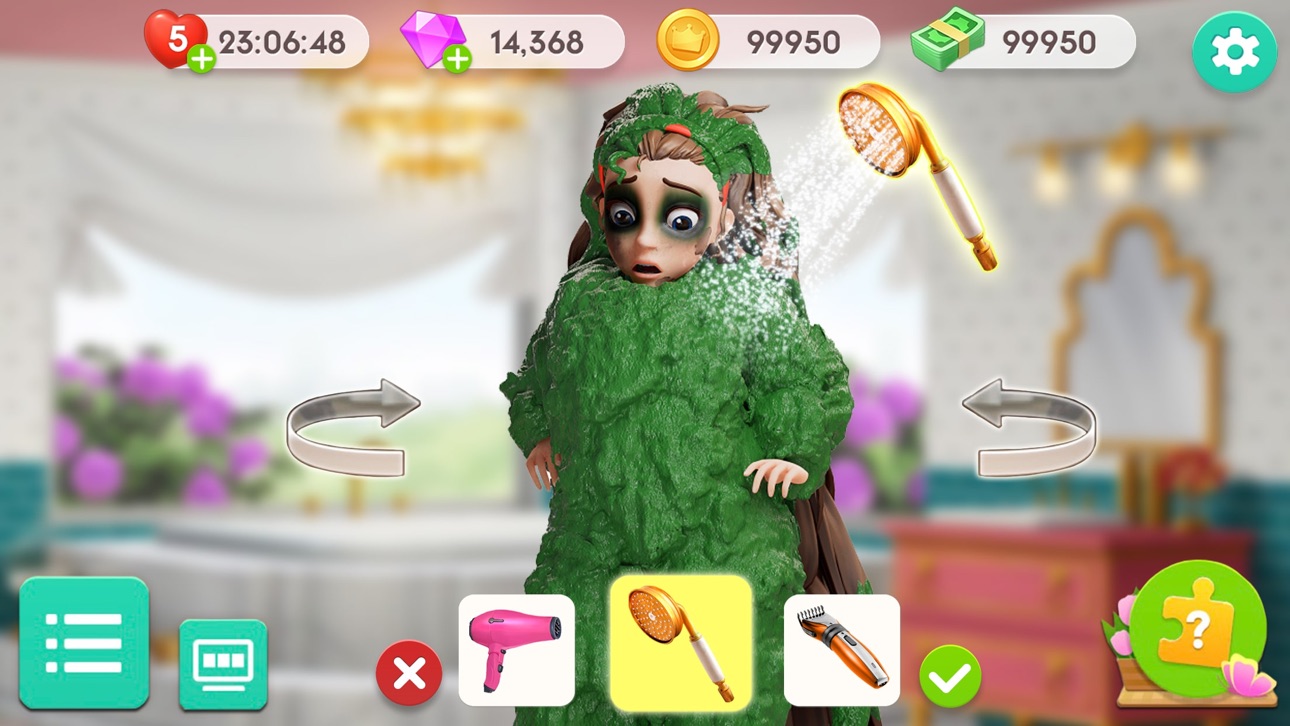by Magic Tavern, Inc.
Detailed Review
Key Features
- •Character makeover system allowing detailed customization of hairstyles, makeup, and clothing selections for diverse client needs
- •Match-3 puzzle gameplay with fashion-themed elements that gates progression and resource acquisition
- •Home decoration mode featuring furniture arrangement and interior design challenges across various room types
- •Narrative-driven client scenarios with distinct personalities and style requirements creating contextual challenges
- •Avatar customization enabling players to develop personal style identity through extensive wardrobe options
- •Social features including design sharing and community voting mechanisms for created outfits and spaces
Why Users Love It
Perfect for: Casual gamers interested in fashion and interior design
Screenshots





User Reviews
I have tried other makeover games and found them growing boring or no fun at all. This game is challenging enouth to hold my interest plus the story line is great! Thank you for this game, well done! Please keep more coming! Love you guys! Best make over game ever!! I have tried other makeover games and found them growing boring or no fun at all. This game is challenging enouth to hold my interest plus the story line is great! Thank you for this game, well done! Please keep more coming! Love you guys!
This game is so much fun for me an challenging, I can’t get enough Best game ever This game is so much fun for me an challenging, I can’t get enough
This is the best game ever I like creating stuff I love this game This is the best game ever I like creating stuff
This game is very fashion and home design oriented. It’s full of different puzzles to keep you engaged. Highly recommend! Enjoy some laid back gaming Tons of fun This game is very fashion and home design oriented. It’s full of different puzzles to keep you engaged. Highly recommend! Enjoy some laid back gaming
Project makeover coolest ever it’s is so cute I Love project makeover Project makeover coolest ever it’s is so cute
App Details
Developer
Magic Tavern, Inc.
Platform
iosRating
Last Updated
9/6/2025